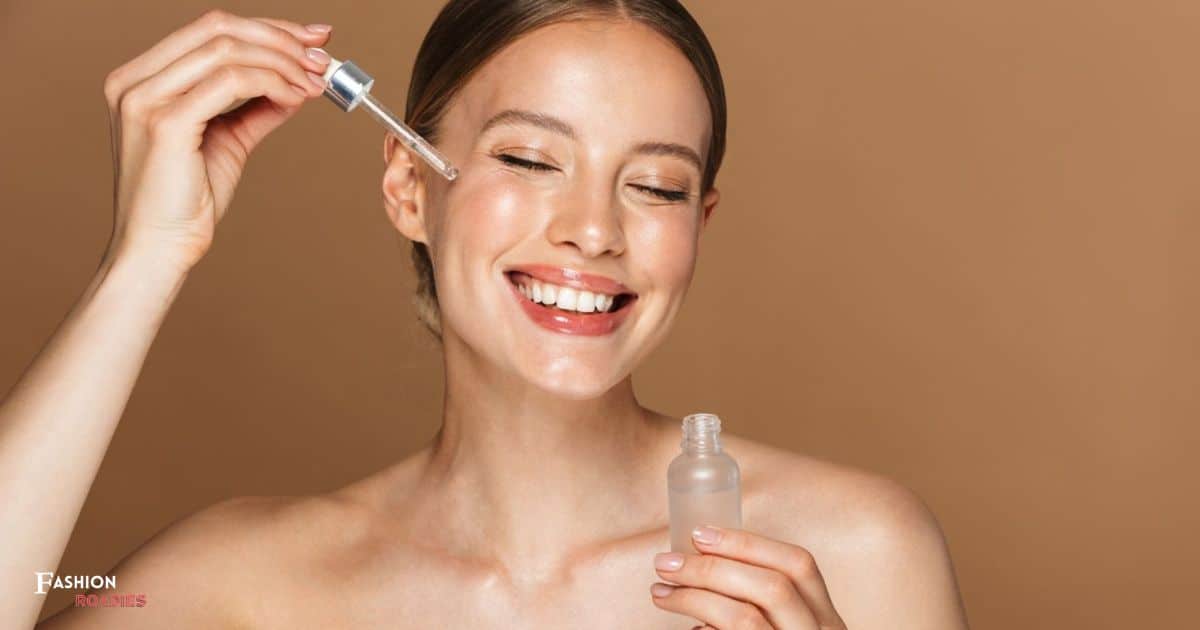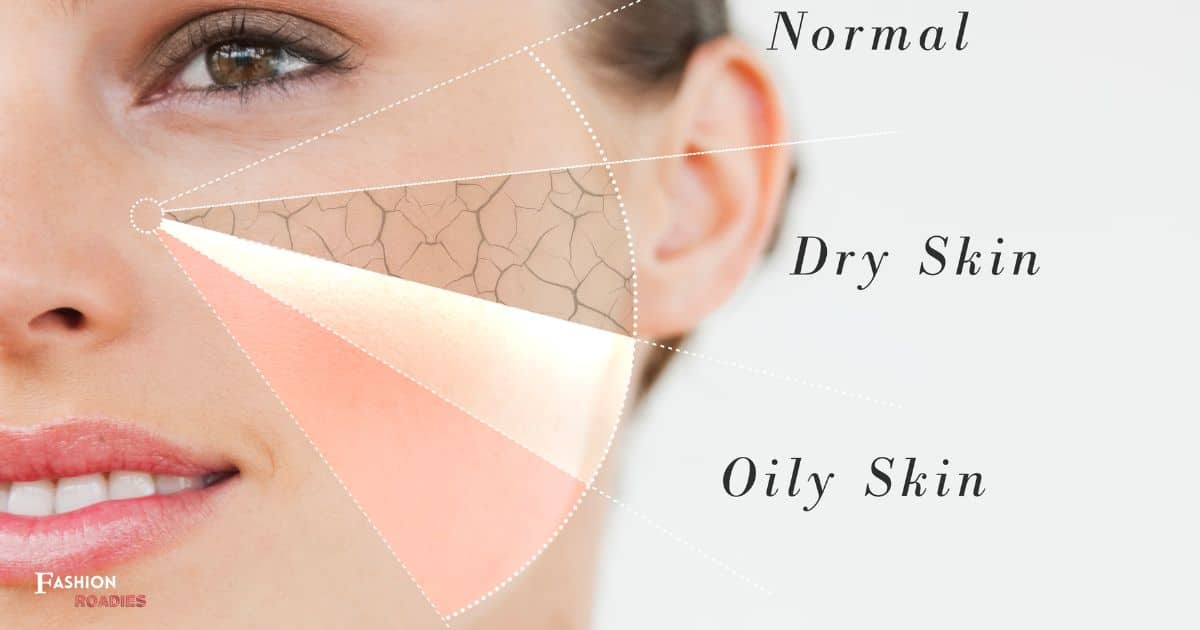Did you know that nearly 85% of people struggle with skin concerns at some point in their lives? Taking care of your skin is not only essential for maintaining a healthy appearance, but it also plays a crucial role in your overall well-being. In this article, we will explore the key steps to starting a good skin care routine that will leave you feeling confident and radiant. By following these expert tips, you can achieve the healthy, glowing skin you’ve always desired and join the community of individuals who prioritize self-care.
Key Takeaways
- Understanding your skin type is crucial for selecting the right skincare products.
- Proper cleansing, including double cleansing, is essential for maintaining a healthy complexion.
- Exfoliation helps remove dead skin cells, unclog pores, and improve skin texture.
- Daily moisturization and sunscreen protection are important for maintaining hydrated and protected skin.
Determine Your Skin Type
To effectively start a good skin care routine, it is essential to determine your skin type through a comprehensive assessment. Understanding your skin type is crucial as it helps in selecting the right skin care products that will address your specific needs. There are different skin types such as dry, oily, combination, and sensitive.
If you have dry skin, it is important to choose skin care products that provide hydration and moisture. Look for products that contain ingredients like hyaluronic acid, glycerin, and ceramides, as these help in replenishing and retaining moisture in the skin. Additionally, opt for gentle cleansers and avoid harsh exfoliants that can strip your skin of its natural oils. By identifying your skin type and using appropriate skin care products, you can effectively nourish and maintain healthy, radiant skin.
Cleanse Properly
Properly cleansing your skin is an essential step in establishing a good skin care routine. By removing dirt, oil, and impurities, you can maintain a healthy complexion and prevent breakouts. Here are some cleansing techniques to help you achieve optimal results:
- Choose the right cleanser for your skin type: Whether you have oily, dry, or sensitive skin, using a cleanser specifically formulated for your needs is crucial.
- Practice double cleansing: This technique involves using an oil-based cleanser followed by a water-based cleanser. The benefits of double cleansing include thorough removal of makeup, sunscreen, and deep-seated dirt, leading to clearer and more radiant skin.
- Gently massage your face: Using circular motions, massage your cleanser onto your skin to stimulate blood circulation and promote a healthy glow.
- Rinse thoroughly: Make sure to remove all traces of cleanser by rinsing your face with lukewarm water. Pat dry with a clean towel.
Exfoliate Regularly
Exfoliating regularly is an essential step in any good skincare routine. Not only does it help to remove dead skin cells, but it also promotes cell turnover and reveals a brighter, smoother complexion. The recommended frequency for exfoliation depends on your skin type, but generally, it is recommended to exfoliate 1-3 times a week.
Benefits of Exfoliation
Regular exfoliation offers numerous benefits for the skin, promoting a smoother and more radiant complexion. By removing dead skin cells, exfoliation reveals fresh, new skin underneath and allows skincare products to penetrate deeper into the skin. Here are some key benefits of exfoliation:
- Improved texture: Exfoliation helps to smooth rough patches, reducing the appearance of fine lines and wrinkles.
- Brightened complexion: By sloughing off dead skin cells, exfoliation reveals a brighter, more even skin tone.
- Enhanced absorption: Exfoliating regularly allows skincare products to be absorbed more effectively, maximizing their benefits.
- Reduced breakouts: Exfoliation unclogs pores and removes excess oil, helping to prevent acne and breakouts.
- Stimulated collagen production: Exfoliation stimulates the production of collagen, promoting firmer, plumper skin.
To achieve these benefits, there are various exfoliation techniques to choose from, including physical exfoliants like scrubs and brushes, as well as chemical exfoliants such as AHAs and BHAs. It is important to choose a method suitable for your skin type and to exfoliate gently to avoid irritation.
Recommended Exfoliation Frequency
To maintain the benefits of exfoliation, it is essential to adhere to a recommended frequency for incorporating this skincare practice into your routine. Exfoliation helps to remove dead skin cells, unclog pores, and promote a brighter complexion. However, over-exfoliation can lead to irritation and damage to the skin barrier.
The frequency of exfoliation depends on your skin type and sensitivity. Here is a table outlining the recommended exfoliation frequency for different skin types:
| Skin Type | Exfoliation Frequency |
|---|---|
| Dry | Once or twice a week |
| Normal | Two to three times a week |
| Oily | Three to four times a week |
Remember, it’s important to choose the right exfoliation techniques and products for your skin type. Gentle exfoliants like chemical exfoliators with AHAs or BHAs are recommended for sensitive skin, while physical exfoliators like scrubs can be used for less sensitive skin.
As we move on to the next section about moisturizing daily, it’s important to note that exfoliation should always be followed by proper hydration to keep the skin balanced and nourished.
Moisturize Daily
Moisturizing daily is an essential step in a good skin care routine. Proper hydration is crucial for maintaining healthy skin, as it helps to replenish moisture, prevent dryness, and improve skin elasticity. Choosing the right moisturizer for your skin type is important to ensure optimal results and address specific skin concerns.
Hydration for Healthy Skin
How can daily moisturization contribute to achieving and maintaining healthy, hydrated skin?
- Daily moisturization plays a crucial role in hydrating the skin and maintaining its health. Here are some reasons why it is important:
- Hydration: Moisturizers help to replenish the skin’s moisture levels, preventing dryness and dehydration. This is essential for maintaining a healthy skin barrier.
- Nourishment: The best moisturizing ingredients, such as hyaluronic acid, glycerin, and ceramides, provide nourishment to the skin, improving its texture and appearance.
- By incorporating a daily moisturizing routine, you can effectively address skin concerns such as dryness, flakiness, and uneven skin tone. Regular moisturization can also help to reduce the signs of aging, keeping your skin looking youthful and radiant.
- Remember, consistency is key when it comes to moisturization. Make it a part of your daily skincare routine to achieve long-lasting hydration and maintain healthy, glowing skin.
Importance of Daily Moisturizing
Daily moisturizing is an essential step in maintaining healthy and hydrated skin. The importance of hydration cannot be overstated when it comes to skincare. Our skin is the largest organ in our body and acts as a protective barrier against external factors. Moisturizing daily helps to replenish and retain the moisture in our skin, preventing dryness and dehydration.
Dry skin can lead to a variety of issues such as itching, flaking, and even premature aging. By moisturizing regularly, we provide our skin with the necessary hydration it needs to stay supple, smooth, and radiant. Additionally, moisturizers can also help to seal in other beneficial skincare products, allowing them to penetrate deeper into the skin and work more effectively. So, don’t forget to make daily moisturizing a part of your skincare routine for the numerous benefits it offers.
Choosing the Right Moisturizer
To ensure optimal skincare results, it is crucial to select the appropriate moisturizer for your specific skin needs. Choosing the right moisturizer plays a vital role in maintaining healthy, hydrated skin. Here are some key points to consider when selecting your moisturizer:
- Skin type: Determine whether your skin is oily, dry, or combination to find a moisturizer that suits your specific skin type.
- Ingredients: Look for moisturizers that contain hydrating ingredients like hyaluronic acid, glycerin, or ceramides to provide the maximum benefits of hydration.
- SPF protection: Consider using a moisturizer with added SPF protection to safeguard your skin from harmful UV rays.
- Fragrance-free options: If you have sensitive skin, opt for fragrance-free moisturizers to prevent any potential irritation.
Protect With Sunscreen
The use of a high-quality sunscreen is essential in any effective skin care routine. Sunscreen application is crucial for protecting the skin from harmful UV rays that can cause sunburn, premature aging, and even skin cancer. When choosing a sunscreen, look for one that offers broad-spectrum protection, meaning it shields against both UVA and UVB rays.
Opt for a sunscreen with a high SPF (sun protection factor) of at least 30. Apply sunscreen generously to all exposed areas of the skin, and reapply every two hours or after swimming or sweating. Remember that sun protection is not just limited to sunny days; UV rays can penetrate through clouds, so it’s important to wear sunscreen every day, regardless of the weather.
Incorporate Targeted Treatments
An important step in a good skin care routine is incorporating targeted treatments. These treatments are specifically designed to address specific skin concerns or issues. By incorporating targeted treatments into your skincare routine, you can effectively address and improve the overall health and appearance of your skin. Here are two sub-lists to help you understand the importance of targeted treatments:
- Targeted treatments for acne-prone skin:
- Salicylic acid: Helps to unclog pores and reduce acne-causing bacteria.
- Benzoyl peroxide: Kills acne-causing bacteria and reduces inflammation.
- Retinoids: Promotes cell turnover and helps prevent clogged pores.
- Targeted treatments for anti-aging:
- Vitamin C: Boosts collagen production and brightens the skin.
- Hyaluronic acid: Hydrates and plumps the skin, reducing the appearance of fine lines and wrinkles.
- Peptides: Stimulates collagen production and improves skin elasticity.
Incorporating these targeted treatments into your skincare routine can help you achieve your desired skin goals and maintain a healthy complexion.
Establish a Consistent Routine
After incorporating targeted treatments into your skincare routine, it is important to establish a consistent routine. By doing so, you can maximize the benefits of your skincare products and maintain healthy, glowing skin. Building a routine involves creating a schedule and sticking to it diligently. To help you get started, here is a simple table outlining a basic skincare routine:
| Morning | Evening | Weekly |
|---|---|---|
| Cleanse | Cleanse | Exfoliate |
| Tone | Tone | Mask |
| Apply serum | Apply serum | Spot treatment |
| Moisturize | Moisturize | |
| Protect with SPF |
Establishing consistency in your skincare routine not only promotes effective product absorption but also creates a sense of stability and self-care. Remember to choose products suitable for your skin type and concerns, and adjust your routine as needed. By dedicating a few minutes each day to taking care of your skin, you can achieve long-lasting results and enjoy a healthy complexion.
FAQ’s
Can I Use the Same Cleanser for Both Morning and Evening Cleansing?
Using the same cleanser for both morning and evening cleansing can be effective as long as it suits your skin type and addresses your specific concerns. However, some individuals may prefer using different cleansers for their morning and evening routines.
How Often Should I Exfoliate My Skin?
Exfoliating skin regularly is key to achieving a healthy complexion. Determine the best exfoliating products for your skin type and follow recommended usage guidelines. Enjoy the benefits of smoother, brighter skin.
Can I Skip Moisturizing if My Skin Feels Oily?
Moisturizing is crucial for all skin types, including oily skin. While it may seem counterintuitive, skipping moisturizer can actually lead to increased oil production. Look for lightweight, oil-free formulas to keep your skin balanced and hydrated.
What SPF Level Should I Look for in a Sunscreen?
When choosing a sunscreen, it is important to consider the level of sun protection factor (SPF) recommended. Different skin types have different needs, but generally, a broad-spectrum sunscreen with an SPF of 30 or higher is recommended for optimal protection against harmful UV rays.
Are There Any Specific Targeted Treatments for Acne-Prone Skin?
When it comes to acne-prone skin, specific spot treatments can be highly effective. Look for ingredients like salicylic acid, benzoyl peroxide, and tea tree oil, which are known for their ability to target and treat acne breakouts.
Conclusion
In conclusion, establishing a consistent skincare routine is crucial for maintaining healthy and glowing skin. By determining your skin type, cleansing properly, exfoliating regularly, moisturizing daily, protecting with sunscreen, and incorporating targeted treatments, you can achieve optimal results. Remember, taking care of your skin is like an exquisite dance, where each step is essential in creating a radiant and flawless complexion. So, embrace this skincare routine with passion and watch as your skin transforms into a work of art.











